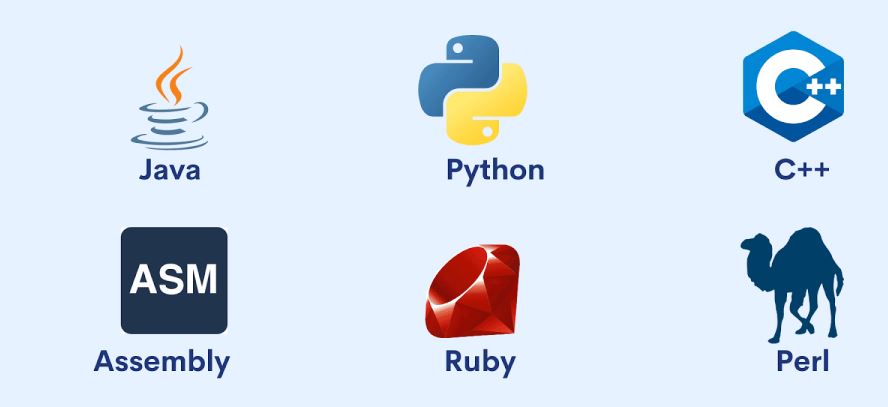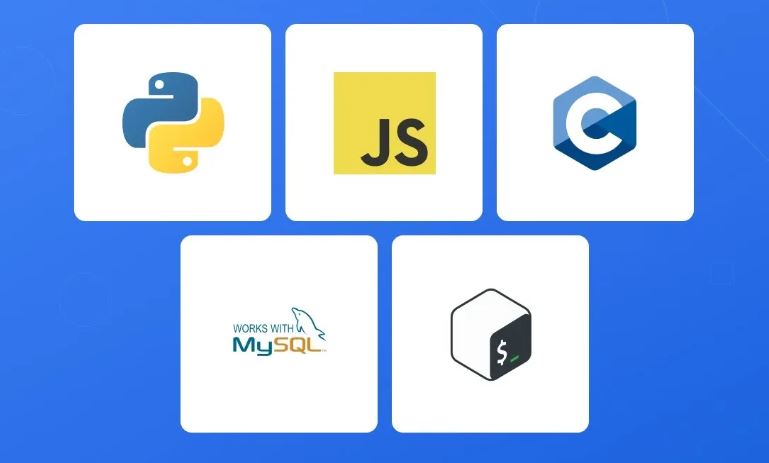Why Is Programming Important in Cybersecurity?
Programming is a crucial skill in cybersecurity, used for:
- Vulnerability Analysis: Writing scripts to detect system weaknesses.
- Security Tool Development: Creating antivirus programs and firewalls.
- Reverse Engineering: Understanding malware behavior.
- Automation: Writing scripts to enhance security processes.
Top Programming Languages for Cybersecurity
1. Python
Why Python?
- Beginner-friendly and easy to learn.
- Offers powerful libraries like Scapy, Nmap, and Paramiko for network security.
- Used in penetration testing tools like Metasploit.
Common Uses:
✅ Security automation
✅ Network scanning & analysis
✅ Malware analysis
2. C & C++
Why C & C++?
- Works at a low system level, helping in deep vulnerability research.
- Essential for memory management, crucial for exploit development.
Common Uses:
✅ System security analysis
✅ Intrusion detection systems (IDS) development
✅ Reverse engineering
3. JavaScript
Why JavaScript?
- Key for understanding web-based threats like Cross-Site Scripting (XSS).
- Supports security testing frameworks like Node.js.
Common Uses:
✅ Web application security testing
✅ Exploiting and defending against web-based attacks
4. Bash & Shell Scripting
Why Bash?
- Automates network scanning, log analysis, and security tasks.
- Crucial for Linux/Unix-based security operations.
Common Uses:
✅ Security automation
✅ Server log analysis
✅ Network penetration testing
5. Java
Why Java?
- Popular in enterprise applications, making it crucial for security testing.
- Helps in developing security tools for web-based applications.
Common Uses:
✅ Enterprise software security testing
✅ Web security tool development
Other Important Cybersecurity Languages
- Ruby: Used in penetration testing tools like Metasploit.
- PHP: Useful for analyzing web applications for security vulnerabilities.
- SQL: Essential for detecting and preventing SQL Injection attacks.

How to Choose the Right Programming Language?
✅ For Network Security & Automation: Python & Bash
✅ For Low-Level System Security: C & C++
✅ For Web Security: JavaScript & PHP
✅ For Data Security: SQL
Tips for Learning Programming in Cybersecurity
📌 Start with the basics before diving into advanced security applications.
📌 Work on real-world projects, like network scanners and malware analyzers.
📌 Experiment with open-source security tools like Metasploit and Wireshark.
📌 Stay updated on new vulnerabilities and security advancements.
Conclusion:
Python remains the most widely used language due to its versatility and ease of learning. However, mastering multiple languages like C, JavaScript, and Bash is crucial for specialized security roles. By developing strong coding skills, cybersecurity professionals can build effective security tools, analyze threats, and protect systems more efficiently.





